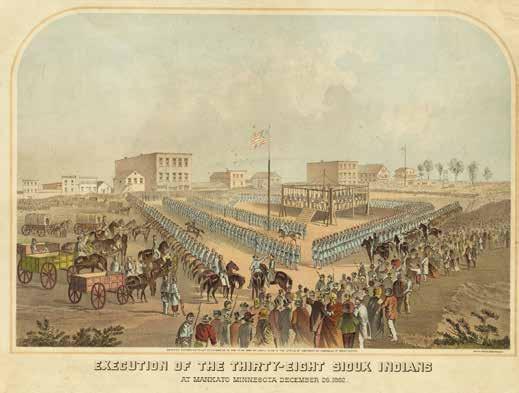[2012 chautauqua]
The History of St. George’s Episcopal Church By Amy Juhala, Associate Professor of English at Bismarck State College
The first Episcopal Church service in Bismarck was held in the Capitol Hotel on March 8, 1873, when James Humbert, infant son of Lt. and Mrs. Humbert of Camp Hancock, was baptized by the Rev. Charles Swift. On July 5, 1876, the Far West riverboat docked in Bismarck after a fifty-four hour voyage downriver from the Little Bighorn, bearing news of General Custer’s defeat. The news was brought immediately to Camp Hancock where Bismarck’s only telegraph line carried the news to St. Paul, Chicago, and Washington, D.C. The news of a major military campaign’s utter defeat wrinkled the United States’ centennial celebration. After the message was sent, it was imperative to keep the wire open until further details could be gathered from the survivors aboard the Far West. Colonel Lounsberry, also the editor of the Bismarck Tribune and a correspondent of the New York Herald, reached into his pocket and pulled out the Episcopal Book of Common Prayer and set it on the operator’s desk with the instruction, “Send this!,” and he did. Bishop Clarkson of Nebraska made a visit to Bismarck. In the fall of 1877, he appointed the Rev. J. A. Graham of Brainerd, Minnesota, to conduct services in Bismarck on the third Sunday of each month. The church service was held in the old city hall located on the east side of Fourth Street between Broadway and Thayer Avenues. The ladies of the congregation organized a New England dinner which earned them $200. This encouraged them to continue with the organization of the church. In 1878 the Rev. Miller became the first resident missionary. Church services were conducted in a new brick schoolhouse, located where the Provident Life Insurance building now stands, and the Protestant Episcopal Church of Bismarck was organized. At the request of Bishop Clarkson, the board of directors of the Northern Pacific Railroad deeded six lots to the church. These lots were located on the northeast corner of Mandan Street and Avenue A and cost a total of $30. The construction of a church building was completed by June 1881. Given the name The Church of the Bread of Life, the first Episcopal church of Bismarck was consecrated on Whitsunday by Bishop Clarkson, assisted by the Rev. Dr. Batterson of Philadelphia. The cost of the building was $2000 without furnishings. 30







